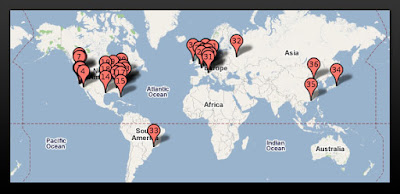This bit of news runs on from my last post about Pakistan blocking Facebook and provides yet another reason that fair minded ordinary people are being forced to use anonymous surfing programs if they want to surf the web without interference.
It’s yet again part censorship but mostly the technical limitations of how the internet feed to a country can be restricted using blunt methods. The Telecommunications Communication Presidency (TIB) in Turkey have asked the ISPs to filter IP addresses that are associated with YouTube. Now YouTube was actually blocked in Turkey sometime ago, using a clumsy combination of my least favorite censorship method of DNS poisoning (mainly because it’s hopeless and anyone can bypass it) and the slightly more effective IP address blocking. But it seems that wasn’t enough and they suspect that other IP addresses associated with YouTube represent a risk to whatever they’re trying to protect Turkish citizens from.
Of course the problem is that these IP addresses happen to owned by Google the owners of YouTube, who actually run quite a few different applications that people use worldwide. You may use them yourself – application like Google Earth, Chrome Web browser, Google Analytics, Google webmail, Google Webmaster tools and Google Docs to name just a few. So what it is the problem with this? Well despite what the TIB believe a web site is not hosted on a single web server in a particular datacenter with a specific IP address. Services, applications and web sites are distributed across thousands of servers in datacenters across the world.
The Turkish Journalists Association have also joined in the criticism calling the ban “a restriction of freedom of communication”. Now it’s pretty certain that the Turkish Government didn’t mean to end up banning a load of Web 2.0 functions and analytical tools – but it does illustrate how ridiculous this pantomime filtering is. ISPs are being ordered to block IP addresses on barely more than a whim, an IP address that can be reassigned in minutes from a hard core porn site to a web site about knitting. Yes, I’m afraid it’s that stupid.
